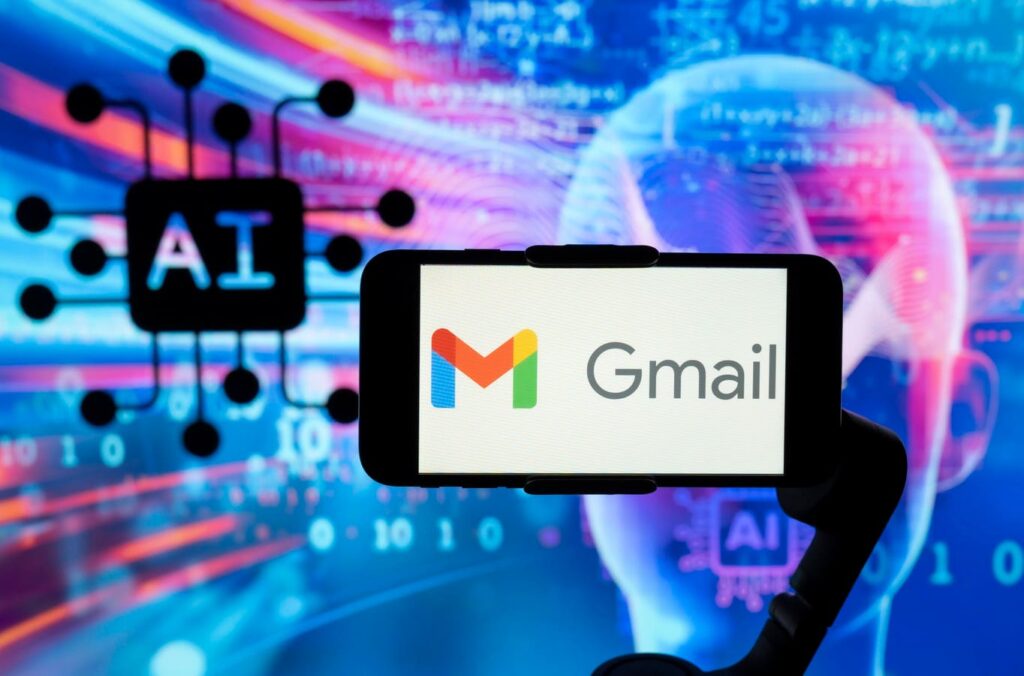Is AI a Blessing or a Curse for Gmail Users?
In a world where artificial intelligence is rapidly evolving, the debate continues: does AI enhance the security of Gmail or make it more vulnerable? Recently, a story went viral, sparking discussions about the double-edged sword that AI poses for email users. Let’s dive into the details of this AI-powered threat and explore how it affects our Gmail experience.
The AI-Powered Hack That Made Headlines
Just ten days ago, a professional security consultant named Sam Mitrovic shared a chilling experience on social media. He almost fell victim to a “super realistic AI scam call” that attempted to hack his Gmail account. This revelation quickly captivated over two million readers, highlighting a significant concern for Gmail users everywhere.
In short, Mitrovic received a notification requesting approval for Google account recovery, but it didn’t stop there. After a missed call, he received another notification and answered the phone, only to engage in a convincing conversation with someone claiming to be from Google support. In reality, it was an advanced AI-generated voice, and he almost got tricked.
This incident essentially signifies a phish attack, a common occurrence that’s becoming increasingly sophisticated with the integration of deepfake technology. Cybersecurity expert Anna Collard explains that the evolving nature of social engineering, combined with AI-generated content, makes it easier for bad actors to deceive users.
AI: Friend or Foe in Gmail Security?
According to the Cybersecurity Survey Report 2024 by Kaseya, cybercriminals are taking advantage of AI advancements to execute more sophisticated attacks at an alarming rate. However, there’s a silver lining; the same technology is also being utilized for defense. Over half of the survey participants believe that AI can enhance their security. Chris Mckie from Kaseya notes the need for more research to clarify the potential of AI in cybersecurity.
Google is aware of these threats and is proactively working to bolster Gmail’s defenses. Recently, a new security advisor tool has been introduced for paid Google Workspace accounts, providing a security sandbox to scan for malicious content in attachments. Furthermore, a large language model trained to identify patterns in harmful emails helps protect all Gmail users. This innovation is praised as one of the most significant advancements in Gmail’s security over the past two decades, akin to having hundreds of cyber-guardians at work.
On October 15, Google launched the AI Gemini app, enhancing core security features for Google Workspace users, enabling organizations to deploy AI securely within their operational frameworks.
Is Gmail Secure Enough Against AI Threats?
When it comes to email security, opinions vary. While Proton Mail may lead in end-to-end encryption, Gmail has its strengths. Google’s considerable resources mean that it can implement advanced security measures effectively. Yet, the onus for security also rests on users—staying informed about evolving phishing threats is crucial.
For those looking to tighten their Gmail security, Google offers the Advanced Protection Program, ideal for high-risk users like journalists and activists, but beneficial for everyone nowadays. The program has evolved to eliminate the need for expensive hardware, streamlining the process of securing accounts.
Google emphasizes the importance of verifying identities during recovery attempts to prevent unauthorized access, thus providing an extra layer of security.
Conclusion
In summary, the emergence of AI has undeniably altered the landscape of cybersecurity, posing both challenges and opportunities for Gmail users. While advanced technologies can serve as powerful defense tools, the evolving threats also demand vigilance and proactive measures from users. Taking personal responsibility for email security and being aware of potential phishing attacks is more important than ever.
The AI Buzz Hub team is excited to see where these breakthroughs take us. Want to stay in the loop on all things AI? Subscribe to our newsletter or share this article with your fellow enthusiasts.




